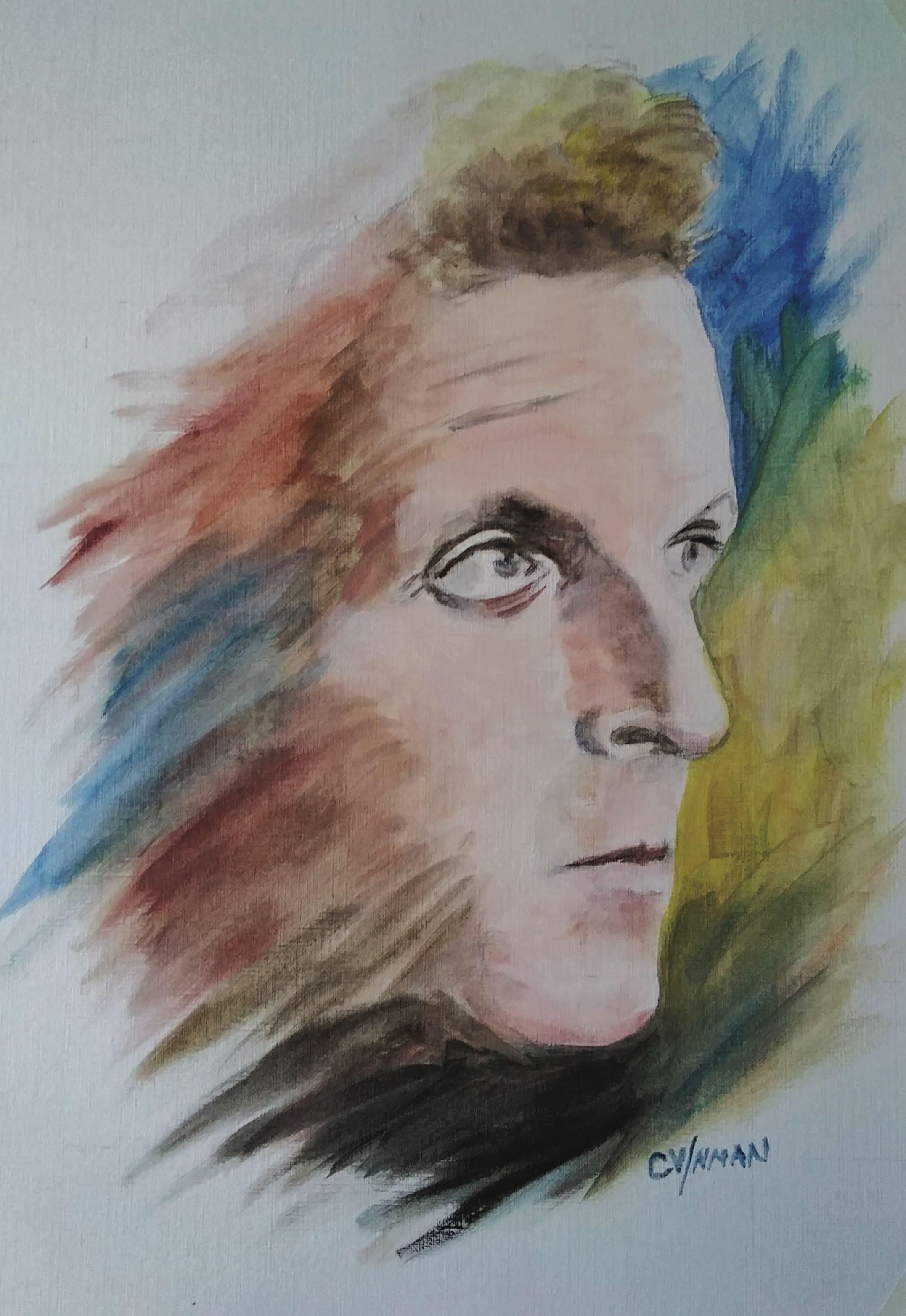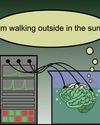Plaiting Gravy

The word ‘creativity’ is derived from the Latin word creare; literally, ‘to cause, to create, to make’. But this definition itself suggests problems. Humans can certainly make things by putting other things together; but do we have the capacity to create something new, as it were, from nothing? Well, like many others, I will take refuge in the phrase “it all depends what you mean by...” The idea that creation was only in God’s realm seems to have been ditched in the seventeenth century. The word creativity seems to have acquired its present meaning around that time, with its implication that humans too can be creative.
One thing we need to clear up first, is that creativity and discovery are not the same thing. Discovery is unearthing something new: that which hasn’t been known before. The discoverer does not know anything of the thing discovered until the discovery occurs. This helps us with what creativity is not: although of course creative people do discover things, creativity can be a frame of mind, whereas discovery cannot.
Some have suggested that one criterion for a creative act is that it should be ‘unique’, rather than a copy of a previous act. Clearly however this cannot be the only criterion, or else one could just churn out a random sequence of letters or characters that made no sense at all and claim that to be creative act. So we need a second criterion for creativity: what is created must make some sort of sense. For that to work, the creative event must be embedded in some sort of symbol system intelligible to a wider audience: for example, language, logic, maths or music.
Wittgenstein & Creativity
Diese Geschichte stammt aus der December 2022 / January 2023-Ausgabe von Philosophy Now.
Starten Sie Ihre 7-tägige kostenlose Testversion von Magzter GOLD, um auf Tausende kuratierte Premium-Storys sowie über 9.500 Zeitschriften und Zeitungen zuzugreifen.
Bereits Abonnent ? Anmelden
Diese Geschichte stammt aus der December 2022 / January 2023-Ausgabe von Philosophy Now.
Starten Sie Ihre 7-tägige kostenlose Testversion von Magzter GOLD, um auf Tausende kuratierte Premium-Storys sowie über 9.500 Zeitschriften und Zeitungen zuzugreifen.
Bereits Abonnent? Anmelden

Affirmative Action for Androids
Jimmy Alfonso Licon asks, when should we prioritise android rights?

Welcome to the Civilization of the Liar's Paradox
Slavoj Žižek uncovers political paradoxes of lying.

The Importance of the Purple
Massimo Pigliucci looks for threads of integrity in a morally compromised world.

Ethics for the Age of AI
Mahmoud Khatami asks, can machines make good moral decisions?

Anand Vaidya (1976-2024)
Manjula Menon on the short but full career of a 'disciplinary trespasser'.

Studying Smarter with AI?
Max Gottschlich on sense and nonsense when using AI in academia.

Excusing God
Raymond Tallis highlights the problem of evil.

Stephen Fry
Perhaps unshockingly for someone who is an actor, broadcaster, comedian, director, narrator and writer, Stephen Fry has a deep interest in words and how we use them. After hearing him lecture on that subject, Marcel Steinbauer-Lewis asked him about Artificial Intelligence and how it connects with the extraordinary lure of language.

Is VR Meaningful Escapism?
Amir Haj-Bolouri enquires into possible meaning through technology.

What Simone de Beauvoir Got — And Didn't Get – About Motherhood
Nura Hossainzadeh argues that motherhood is both physical and transcendent.
